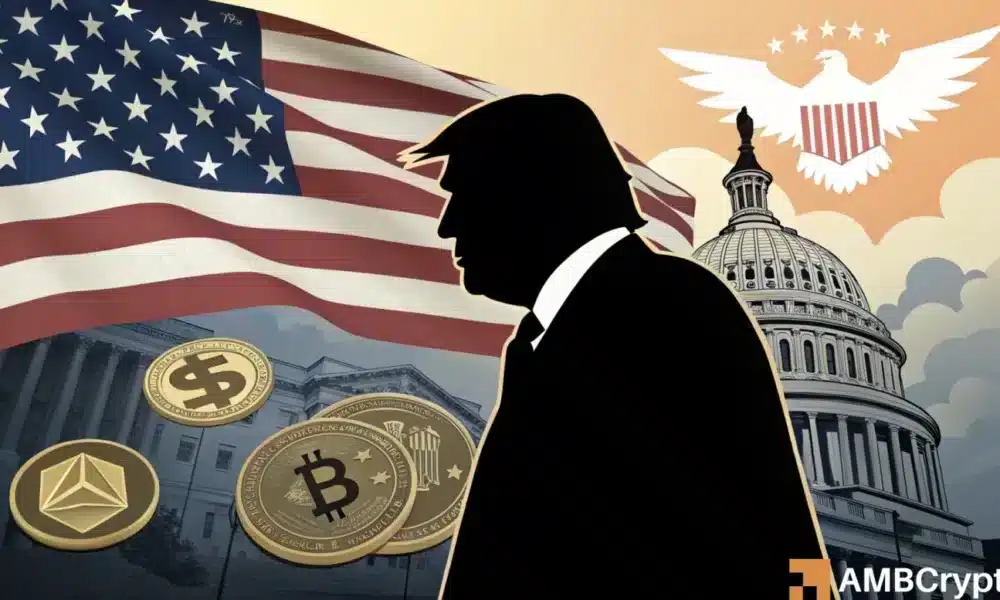Evolving Landscape of Crypto Regulation: A Shift Towards Clarity and Innovation
The ongoing evolution of the cryptocurrency market has prompted critical discussions regarding the regulatory framework governing digital asset trading. Recently, the U.S. Securities and Exchange Commission (SEC) under Acting Chair Mark Uyeda has hinted at a softer stance on crypto regulation, diverging from the stricter approach championed by former Chair Gary Gensler. With important appointments and strategic proposals, the SEC appears poised to foster a regulatory environment that encourages innovation while ensuring investor protection.
Acting Chair Uyeda’s Vision for Temporary Regulatory Fixes
In April, Acting SEC Chair Mark Uyeda convened a roundtable discussion titled “Between a Block and a Hard Place: Tailoring Regulation for Crypto Trading,” which brought key industry stakeholders together, including major players like Coinbase and Uniswap Labs. During this session, Uyeda proposed the establishment of a temporary regulatory framework that would allow for conditional exemptions for both registrants and non-registrants. His rationale is to stimulate innovation in blockchain technology within the U.S. while the Commission develops long-term solutions. This new proposal signifies a move away from Gensler’s aggressive regulatory posture, aiming to create a more accommodating environment for crypto businesses.
Reassessing Stricter Crypto Custody Rules
Additionally, Uyeda has voiced the necessity of reassessing Biden-era proposals that enforced stringent custody rules for investment advisers dealing with cryptocurrencies. These rules faced backlash for being overly broad, and Uyeda’s willingness to reconsider them demonstrates his sensitivity to industry concerns. By advocating for temporary fixes and revisiting controversial measures, Uyeda is seeking to strike a balance between regulatory oversight and industry growth, a departure from the previous SEC administration’s hardline stance on crypto.
Industry Calls for Clarified Oversight
The conversation surrounding the appropriate regulatory body for crypto oversight continues to engage industry voices. Notably, Dave Lauer from Urvin Finance has emphasized the detrimental effects of "turf warfare" between the SEC and the Commodity Futures Trading Commission (CFTC). He argues that the ongoing conflict over regulatory jurisdiction has harmed investors and inhibited clarity in the marketplace. As industry leaders call for clearer delineation of responsibilities between regulators, the need for a unified and straightforward framework becomes increasingly pressing.
The Anticipation Surrounding Paul Atkins’ Appointment
With Paul Atkins’ nomination as SEC Chair, expectations are high for a regulatory approach that is pro-market and favorably responsive to the digital asset sector. Atkins, who has a reputation for advocating a “rational” and “coherent” regulatory environment, has pledged to work collaboratively with other Commissioners and Congress to lay a solid foundation for digital asset regulations. This proposed shift in leadership points toward a regulatory framework that not only safeguards investors but also cultivates innovation within the industry, a critical balance in today’s rapidly changing financial landscape.
The Industry’s Request for Regulation, Not Deregulation
Echoing the sentiments of many industry leaders, Ripple CEO Brad Garlinghouse has emphasized a desire not for deregulation, but for clear and well-defined regulatory guidelines. In a recent interview, Garlinghouse noted that the industry seeks rules that would provide a level playing field for businesses and investors alike. With the new leadership and ongoing discussions among SEC officials, there is a sense of optimism that meaningful regulations will emerge, giving the industry the clarity it has long awaited.
Conclusion: The Future of Crypto Regulation in Focus
As the landscape of cryptocurrency regulation continues to evolve, the SEC’s shift under Acting Chair Mark Uyeda and the potential leadership of Paul Atkins set the stage for constructive changes in the regulatory environment. With an emphasis on temporary fixes, re-evaluation of past rules, and a principled approach to regulation, stakeholders are eager to witness how these developments will transform the future of digital assets. The industry’s calls for innovation-friendly regulations coupled with adequate investor protection signal a significant turning point that could redefine the interaction between regulators and the burgeoning world of cryptocurrencies.











![Ethereum’s [ETH] 11% Surge: Is Greed Indicating a Recovery or Fear Creating a Trap?](https://icoinmarket.com/wp-content/uploads/2025/04/Ritika-8-1000x600.webp-450x270.webp)
![Will Chainlink’s [LINK] Recent Retest Turn Support into Resistance?](https://icoinmarket.com/wp-content/uploads/2025/04/Renuka-57-1000x600.webp-450x270.webp)



